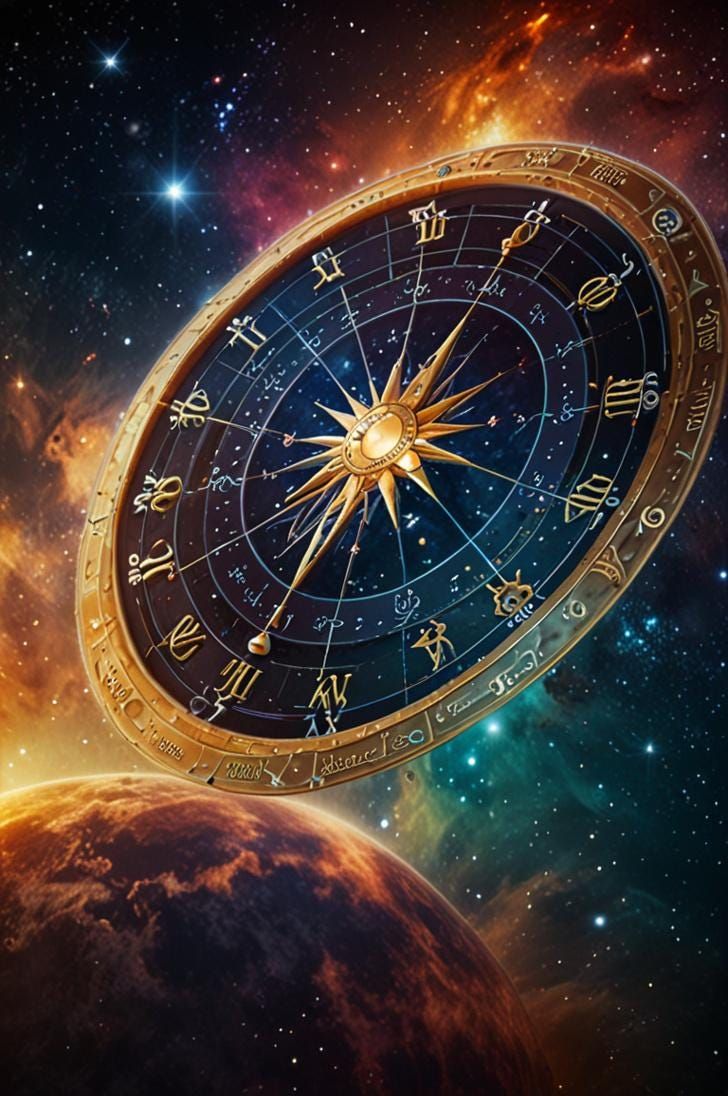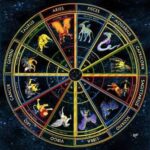7 Shocking Truths About Astrology – History, Significance & Daily Life Impacts
Introduction – The Mysterious World of Astrology
Astrology has fascinated humankind for thousands of years. From ancient kings who made political decisions based on the stars to modern individuals checking their daily horoscope on smartphones, astrology continues to influence our lives in ways both subtle and profound.
- Introduction – The Mysterious World of Astrology
- 🌌 History of Astrology
- 📖 Important Facts About Astrology
- 🕰 Timeline of Astrology
- ✨ Significance of Astrology
- 🎉 Observance & Wishing in Astrology
- 💡 Daily Life Impacts of Astrology
- ❓ FAQs on Astrology
- 📌 Important Points to Remember
- 🌍 Importance of Astrology in Society
- 🎊 Wishing with Astrology – A Human Touch
- 🏁 Conclusion – Astrology in Our Daily Life
At its core, astrology is the study of how celestial bodies like planets, stars, and the moon impact human behavior, personality, and destiny. While some view it as a science of the soul, others dismiss it as superstition. Yet, astrology’s presence in history, culture, and daily life is undeniable.
This article explores astrology’s history, facts, timeline, significance, observance, wishing rituals, FAQs, daily life impact, and its importance to society. By the end, you’ll understand why astrology continues to thrive in the modern age.
🌌 History of Astrology
Mesopotamia (Babylonians) – Around 2000 BCE, Babylonians developed one of the earliest known forms of astrology. They studied planetary movements to predict events like wars and harvests.
Ancient Egypt – Egyptians linked astrology with gods and built temples aligned with stars. The zodiac signs we know today trace back partly to Egyptian and Greek blending.
Greece – The famous mathematician Ptolemy (2nd century CE) systematized astrology in his book Tetrabiblos, which shaped Western astrology.
India – In India, Jyotish Shastra (Vedic astrology) emerged from the Vedas around 1500–1000 BCE. It became deeply rooted in Hindu traditions, guiding marriage, naming ceremonies, and religious rituals.
China – Chinese astrology, dating back over 3000 years, developed its own zodiac based on lunar years with 12 animal signs (Rat, Ox, Tiger, etc.).
Fun Historical Fact
Did you know that in the 16th century, Queen Elizabeth I had a royal astrologer, John Dee, who advised her on political matters using the stars?
📖 Important Facts About Astrology
Zodiac Signs – Western astrology has 12 zodiac signs based on the sun’s position, while Indian astrology uses the moon sign (Rashi).
Astrology vs Astronomy – Astronomy is science; astrology is belief. Yet, both were once considered the same field.
Horoscopes – The word comes from Greek “horoskopos” meaning “time observer.”
Astrology in Religion – Many cultures integrated astrology with spiritual practices. For example, Hindus consult astrologers before major life decisions.
Global Reach – Astrology is practiced differently worldwide – Vedic, Chinese, Western, Mayan, Egyptian, and even Native American astrology exist.
Psychological Angle – Modern psychology sees astrology as a way to understand human behavior and subconscious patterns.
Technology & Astrology – Today, astrology apps and AI-driven horoscopes are downloaded by millions daily.
🕰 Timeline of Astrology
2000 BCE – Babylonian astrology begins.
1500 BCE – Vedic astrology (Jyotish) appears in India.
1000 BCE – Chinese astrology develops.
200 BCE – Greek scholars merge Egyptian and Babylonian astrology.
2nd Century CE – Ptolemy writes Tetrabiblos.
Middle Ages – Astrology thrives in Islamic and European worlds.
Renaissance (15th–17th Century) – Astrologers advise kings and rulers.
20th Century – Astrology enters pop culture through magazines and newspapers.
21st Century – Astrology apps, AI horoscopes, and social media memes make it mainstream again.
✨ Significance of Astrology
Astrology holds importance in multiple dimensions of life:
Spiritual Significance – Helps people align with cosmic energy, guiding meditation and self-awareness.
Cultural Importance – In India, astrology decides wedding dates, housewarming rituals, and even business inaugurations.
Personal Growth – Many use astrology for self-reflection, personality understanding, and emotional healing.
Decision-Making – From job changes to relationship choices, people consult astrologers for guidance.
Social Connections – Discussing zodiac signs has become a fun way for people to bond in modern society.
🎉 Observance & Wishing in Astrology
Birthdays & Zodiac – People often receive wishes based on their zodiac traits (“Happy Birthday, strong Leo!”).
Festivals – In Hindu culture, events like Makar Sankranti are linked to planetary movements.
New Year’s Predictions – Many cultures welcome the new year with astrological forecasts.
Personal Milestones – Astrologers provide Shubh Muhurat (auspicious times) for weddings, business deals, or housewarming.
Wishing with Astrology – Sending personalized zodiac wishes is now a social media trend. Example: “Wishing my Libra friend balance and beauty this year!”
💡 Daily Life Impacts of Astrology
Self-Awareness – Astrology provides insights into personality strengths and weaknesses.
Relationships – Many check compatibility before dating or marriage.
Career Choices – Some people choose careers based on planetary influences.
Health Guidance – Vedic astrology suggests lifestyle adjustments based on planetary positions.
Mental Comfort – Even skeptics admit that astrology offers emotional support during tough times.
Social Media Influence – Zodiac memes, daily horoscopes, and astrology reels are part of online culture.
Economic Impact – Astrology generates billions globally via consultations, apps, gemstones, and rituals.
❓ FAQs on Astrology
Q1. Is astrology science or superstition?
Astrology is not considered science but a system of symbolic interpretation that many find meaningful.
Q2. What is the difference between Vedic and Western astrology?
Vedic astrology uses the sidereal zodiac (moon-based), while Western astrology uses the tropical zodiac (sun-based).
Q3. Can astrology predict the future?
Astrology gives possibilities and tendencies, not exact events. It’s more about guidance than prediction.
Q4. Why do horoscopes sometimes feel accurate?
Because they tap into universal human experiences and psychological tendencies.
Q5. Is it necessary to believe in astrology?
No. Many people use it as a tool for self-reflection, while others enjoy it as entertainment.
📌 Important Points to Remember
Astrology is 4,000+ years old and deeply connected to human history.
It influences culture, religion, and daily decisions worldwide.
Different systems exist: Vedic, Western, Chinese, Mayan, Egyptian.
Astrology impacts personal growth, relationships, careers, and health.
In the digital age, astrology has become more popular than ever.
🌍 Importance of Astrology in Society
Astrology continues to shape society in unique ways:
Bridging Tradition & Modernity – It connects ancient wisdom with modern psychology.
Emotional Support System – Provides comfort during uncertain times.
Cultural Identity – Preserves traditions in India, China, and other regions.
Social Conversations – Zodiac discussions have become part of daily interactions.
Global Business – Astrology apps, online consultations, and gemstone industries thrive globally.
🎊 Wishing with Astrology – A Human Touch
“May the stars align in your favor this year!”
“Wishing you a cosmic journey full of joy, just like your zodiac traits.”
“Happy Birthday, Leo! Keep roaring with confidence and charm.”
“To my Virgo friend – wishing you precision, peace, and prosperity always.”
Personalized wishes make people feel seen and celebrated, adding a spiritual touch to greetings.
🏁 Conclusion – Astrology in Our Daily Life
Astrology is more than just horoscopes in newspapers. It is an ancient wisdom system that has traveled across civilizations, shaping beliefs, traditions, and personal decisions. Whether you see it as science, psychology, or faith, astrology undeniably influences human life and society.
Its history reminds us of our deep connection with the cosmos, its facts highlight our shared cultural journey, and its significance shows why people still look to the stars for answers.
In modern times, astrology continues to be a source of hope, self-reflection, and guidance. It may not predict your future with certainty, but it certainly helps you navigate life with meaning and confidence.
✨ In the end, astrology teaches us that while the stars may not control our destiny, they inspire us to live more consciously and purposefully.









Thanks for sharing superb informations. Your web site is so cool. I am impressed by the details that you have on this website. It reveals how nicely you understand this subject. Bookmarked this web page, will come back for more articles. You, my friend, ROCK! I found just the info I already searched all over the place and simply couldn’t come across. What an ideal web-site.